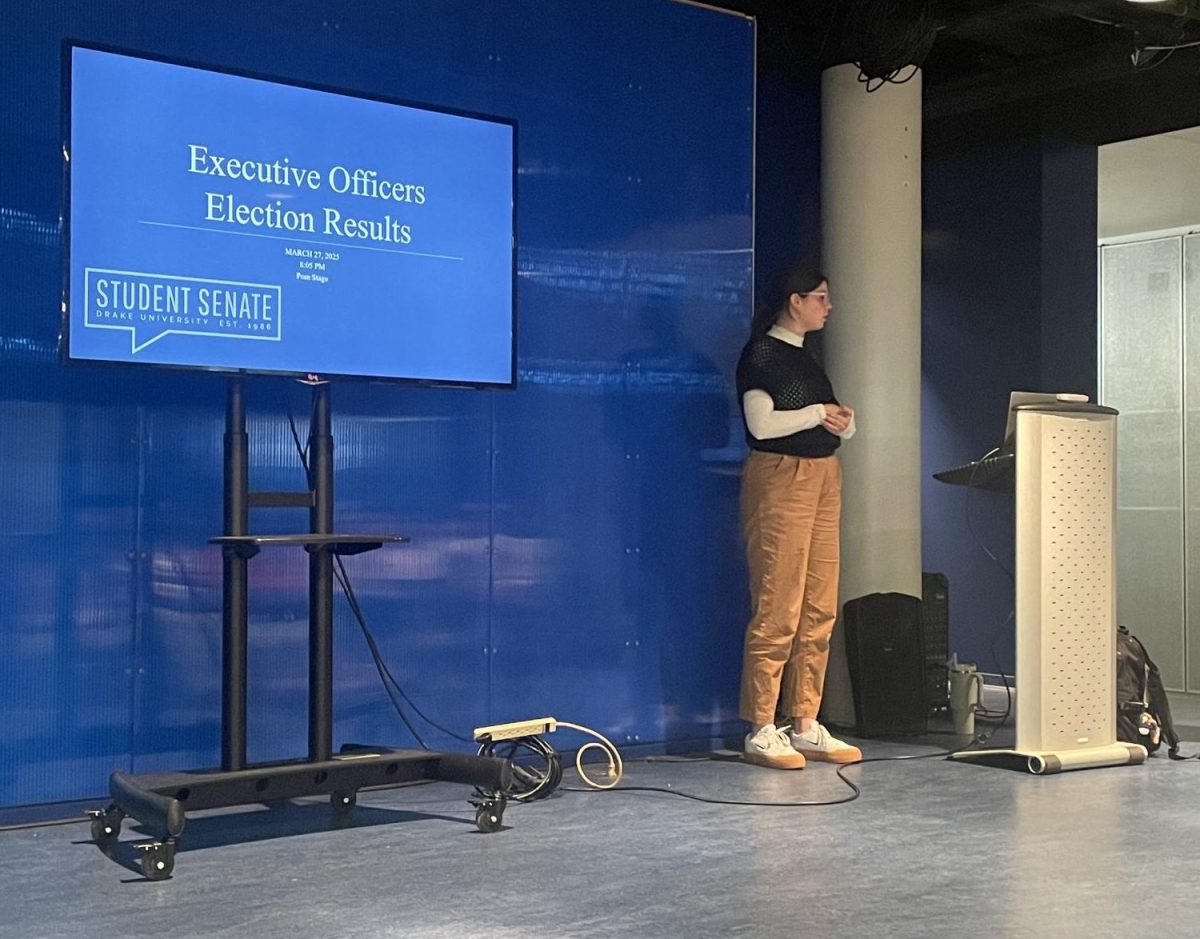Student Senate voted to approve two motions regarding the student activities fee and student media fee at a Nov. 30 meeting.
The first motion allocated 25% of the student activity fee to the Board of Student Communications, and will take effect for the 2024-2025 academic year. Prior to this change, the student media fee was a flat rate of $37.75 per student per year, a number that had not been updated in a decade. Conversely, the student media fee will now fluctuate with the student activities fee when it is reevaluated every five years, rather than be considered separately.
“Just from the perspective of inflation, this would get [the BSC] roughly to the same purchasing power as the $37.75 that they got ten years ago,” Vice President of Student Life Breckyn Lyons said in the meeting.
During the meeting, Zimpleman College of Business Senator Luke Gregoire and Equity and Inclusion Senator Ana Chacon thought the 25% allocation may be too high, but both agreed that moving to a percentage from a flat fee is the best way to adjust for inflation.
“This is necessary for [the BSC’s] budget to keep creating these [publications] for us,” Chacon said. “But my biggest concern with that is that not everybody uses The Times-Delphic, Drake [Magazine], so that’s what I’m feeling about that higher percentage.”
Chacon — along with University Services Senator Daja Lucas, Health and Safety Senator Ashley Dyson and Equity and Inclusion Senator Jessica Avianeda — abstained from the vote. Civic Engagement Senator Chloe Lepak voted no on the motion.
In order for this motion to take effect, it had to be approved by at least two governing bodies consisting of Student Senate, Faculty Senate and the BSC. As the BSC approved the motion on Nov. 17, this requirement has been fulfilled. Faculty Senate will vote on Dec. 6, although their approval is not required.
“With the raise in fee, all six publications will be able to continue producing national award-winning content while being paid adequately for their work,” Drake Political Review Editor-in-Chief Madeline Crawford said. “Student publications make this campus better, as they serve as free news and entertainment platforms for students to become engaged citizens.”
The second motion sought to increase the annual student activity fee from the current number of $178 to $216 per student. Student Senate approved this motion unanimously. To be enacted, it will also have to receive approval from the Drake University Board of Trustees in January. Senate voted to increase the student activity fee by a similar margin in the fall of 2018 and it went into effect for the 2019-2020 academic year.
Vice President of Student Organizations Abbie Whittemore supported this motion because an increased fee would allow Student Senate to provide more one-time funding, fund new organizations and allow current organizations to thrive.
“The student body will see the impacts of this in terms of the quality and number of events that these annually funded organizations put on,” Whittemore said. “With more money allocated, they will be able to engage the student body in more creative and engaging ways.”
An increased student activity fee has been a topic of contention within the student body after Student Body President Ruwayda Egal sent out a survey on the topic in a Nov. 10 email.
“My constituents have said they don’t receive a lot of value from many organizations on campus, nor organizations from BSC,” Gregoire said during the meeting. “That being said, they do understand the value they can play in student life and are behind raising the money raising the fee given inflation.”
Both of these motions had been deliberated over for months by an ad hoc committee composed of members from Student Senate, Faculty Senate and the BSC. According to Academic Affairs Senator Melissa Moxon, who served on the ad hoc committee, these decisions were not made lightly.
“There was a lot of thought and back and forth that went into finding a number that everyone was comfortable with,” Moxon said. “Overall, it was a long time coming and it was probably the best outcome we could have asked for.”












